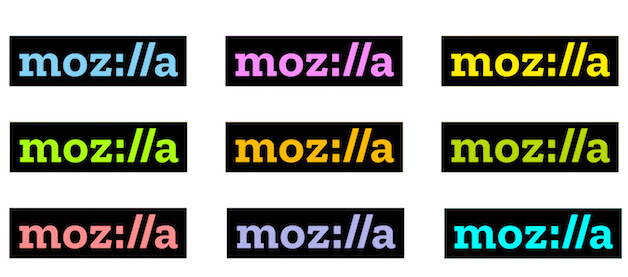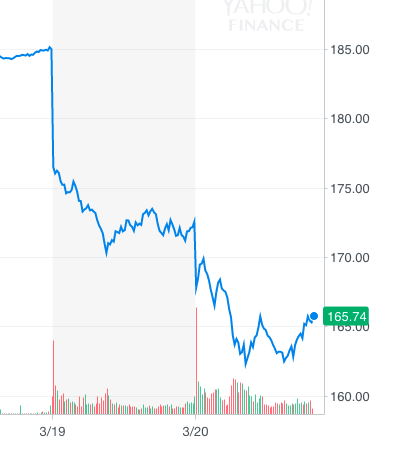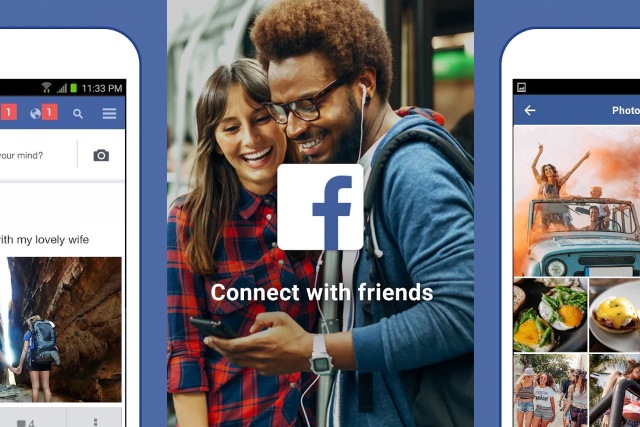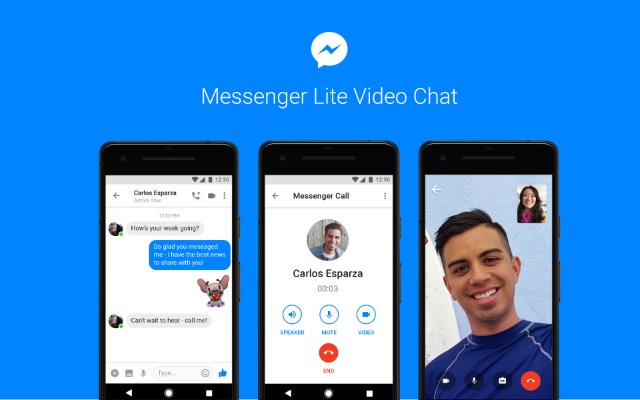
Privacy: Facebook has been collecting call and text data from Android users
It has been a bad week for Facebook -- and its users -- after it was revealed that Cambridge Analytica had harvested data from millions of accounts on the social network. Now it turns out that Facebook itself has been engaged in gathering user data.
A social media user, Dylan McKay from New Zealand, downloaded his Facebook archive and was shocked to discover that nearly two years' worth of call and text logs from his Android phone were included. McKay is not alone, and it's possible that details of your communication have been logged as well.

Mozilla pulls advertising from Facebook
Mozilla is not happy with Facebook. Not happy at all. Having already started a petition to try to force the social network to do more about user privacy, the company has now decided to withdraw its advertising from the platform.
The organization is voting with its money following the misuse of user data by Cambridge Analytica, as it tries to force Facebook into taking privacy more seriously.

Facebook reveals the steps it will take to avoid the next big data breach
After it was revealed that private data belonging to 50 million Facebook users was shared with data analytics company Cambridge Analytica, there has been much talk about what went wrong and how something similar can be avoided in the future. Mark Zuckerberg issued a non-apology, but Facebook has also indicated some of the things it will be doing in the wake of the fiasco.
Zuckerberg says that back in 2014, steps were taken to restrict the access apps have to data, and the social network also plans -- in the name of transparency -- to inform everyone who has been, or may have been, affected by the data breach. New tools are also on the way to give users greater control over apps, and to prevent abuse of Facebook and the data it holds.

Mark Zuckerberg's failure to apologize about the Cambridge Analytica privacy breach is despicable
After five days of complete silence, Mark Zuckerberg finally decided to face the music and talk about the Cambridge Analytica debacle which has seen the private information of more than 50 million Facebook users harvested by the data analytics company
Yesterday, the Facebook founder condescended to issue a statement about the privacy breach, and also appeared in a CNN interview. He was, of course, quick to point out that his company has already cleaned up its act and would be doing a lot more, including auditing apps and developers. So far, so face-saving. One thing he rather forgot about, however, was saying sorry to the hordes of people affected by the matter.

Mark Zuckerberg to publicly shame himself over Cambridge Analytica scandal on CNN tonight
Facebook is a pretty terrible experience. Yeah, as a social network, I guess it does its job of connecting friends, family, and colleagues, but its non-chronological interface makes it damn-near impossible to make sense of things. Not to mention, it is a privacy nightmare, expecting users to opt-out of data-slurping features using confusing settings. Don't even get me started on its spread of fake news. Ultimately, it is not user-friendly, and the company seems content with letting it remain that way.
The Cambridge Analytica scandal merely highlights things "conspiracy theorists" have long screamed about -- with Facebook, you are the product. While people were fairly accepting of trading their details for advertising, nobody expected that their Facebook use could impact the outcome of a presidential election! Hell, Donald Trump was arguably handed the election by a combination of Russian meddling and this Cambridge Analytica data misuse. After days of deafening silence, today, billionaire Facebook CEO Mark Zuckerberg finally admits his company's failures. Taking it a step further, he will face a public shaming tonight on CNN.
Mozilla launches a petition asking Facebook to do more for user privacy
In the fallout from the Cambridge Analytica debacle, Facebook has been roundly criticized for not only its handling of the situation, but also its attitude to privacy in general. The criticism comes not only from users, but also politicians and technology firms. The latest company to speak out is Mozilla.
After it was revealed that the personal data of 50 million Facebook users was shared without consent, Mozilla is calling on the social network to ensure that user privacy is protected by default, particularly when it comes to apps.

Facebook, Cambridge Analytica and our personal data
Facebook shares are taking it on the chin today as the Cambridge Analytica story unfolds and we learn just how insecure our Facebook data has been. The mainstream press has -- as usual -- understood only parts of what’s happening here. It’s actually worse than the press is saying. So I am going to take a hack at it here. Understand this isn’t an area where I am an expert, either, but having spent 40+ years writing about Silicon Valley, I’ve picked up some tidbits along the way that will probably give better perspective than what you’ve been reading elsewhere.
Much of this is old news. There are hundreds -- possibly thousands -- of companies that rely on Facebook data accessed through an Application Programming Interface (API) called the Graph API. These data are poorly protected and even more poorly policed. So the first parts of this story to dispel are the ideas that the personality test data obtained by Cambridge Analytica were in any way unusual or that keeping those data after their sell-by date was, either. That doesn’t necessarily make the original researcher without blame, but the Cambridge folks could have very easily found the same data elsewhere or even generated it themselves. It’s not that hard to do. And Facebook doesn’t have a way to make you throw it away (or even know that you haven’t), either.

Don't want to #DeleteFacebook? Opt out of Platform API sharing instead -- here's how
Following the recent Cambridge Analytica scandal, you can't have failed to notice there’s a backlash against Facebook at the moment, with the #DeleteFacebook movement gathering serious momentum. Even WhatsApp co-founder Brian Acton, who sold his app to Facebook for $19 billion in 2014, appeared to back it with a tweet in which he declared "It is time. #deletefacebook".
Unless you don’t use it very often, deleting Facebook is a major step, and one that many people will think is taking things too far. But if you do want to take greater control over your privacy settings you might want to consider opting out of Facebook’s Platform API sharing to prevent future data harvesting.

Facebook is introducing a way for creators to make money from their content
YouTube has become a huge money-making platform, not only for Google, but also for the creators who upload content. Now Facebook wants a piece of the action and is in the process of testing a couple of ways in which creators can monetize their content.
The idea sees Facebook giving creators the chance to offer subscription services to their fans. For $4.99 per month, subscribers can be granted access to exclusive content -- and Facebook won’t be taking a cut of the money.

Facebook suspends Trump campaign's data analytics team, Cambridge Analytica, for harvesting private information of 50 million users
Facebook has suffered what has been described as the social networks "biggest ever data breach" after Cambridge Analytica and its parent group Strategic Communication Laboratories (SCL) harvested data from more than 50 million users.
Cambridge Analytica is best known for its work with the Trump campaign for the 2016 election, and Facebook found that the company had violated it data privacy policies. The data was used as part of a "microtargeting" campaign to try to predict and influence voters' choices in the election.

Data-saving Facebook Lite is now available in the US
Originally designed for countries with slower mobile internet connections, Facebook's cut-down and data-light Facebook Lite app is making its way to the US.
The app has been around since 2015, but it was only available in a limited number of countries, with the focus being primarily on developing nations where connectivity was an issue. But now Facebook is spreading the love to the United States, the United Kingdom and other parts of the world.
Facebook algorithms went mad and threw up some weird -- and sexual -- search suggestions
Facebook has issued an apology after its search algorithms apparently went haywire and started to suggest a range of strange, and often NSFW, videos to users.
Throughout Thursday night into Friday morning, a range of bizarre search suggestions were displayed to anyone who started typing "video of". Some of the suggestions were offensive, and it didn't take long for screenshots to be shared on Twitter.

Facebook bans far-right group Britain First and its leaders for hate speech
In the latest part of its clean-up exercise, Facebook has removed pages of the far-right, anti-Islamic group Britain First. The social network has also closed down the pages of the leaders of the group -- well-known in the UK, and also brought to US attention after Donald Trump shared its tweets.
The ban is such that Britain First will not be able to create any pages in the future. Facebook says that the group has repeatedly violated rules against hate speech, and denies that the bans are an infringement of free speech.
Facebook Onavo VPN app gathers user data even when it is disabled
It is a number of years since Facebook acquired mobile data compression firm Onavo, but in recent weeks concern mounted about how the social network's Onavo VPN tool collects user data.
The collection of user data while an app or service is being used is one thing, but a security researcher noticed that Onavo seemed to gather certain snippets of user data even when switched off.

Facebook adds video chats to Messenger Lite
After initially launching in countries with slower internet connections, Facebook Messenger Lite ultimately spread to other parts of the world. The cut-down version of the app gave access to a subset of its big brother's features, and now Facebook has added support for video chat.
The app has proved popular even in countries with easy access to decent internet and mobile connections, as users eschew super-sized apps in favor of more diminutive versions. The addition of this important and popular feature is only going to increase its appeal.
